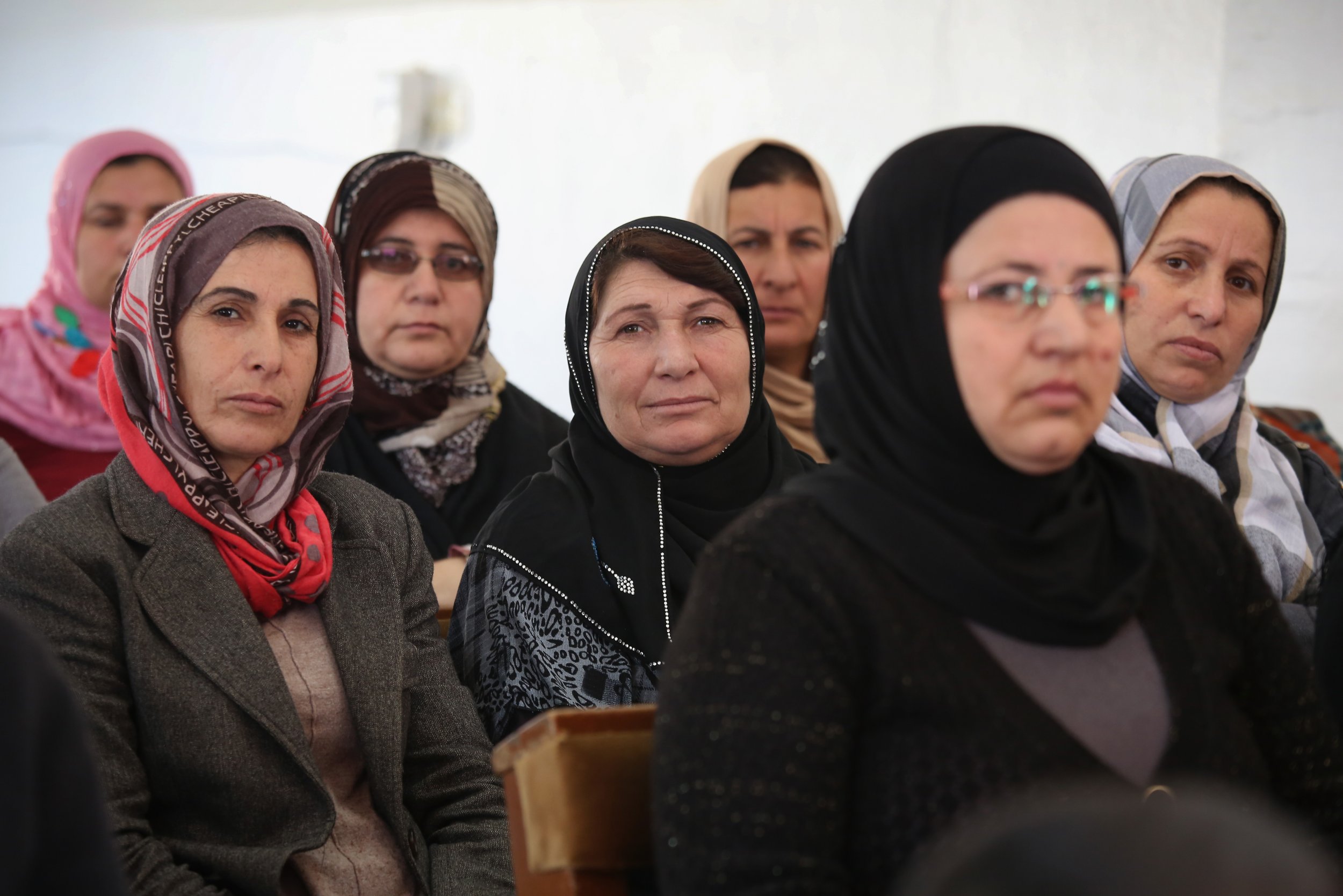
Details have emerged of how women in towns and villages across northern Syria have defied the fierce oppression of President Bashar Al-Assad's Ba'ath regime to come together and create a women's movement.
The Committee of Diplomacy of Kongreya Star—a confederation of women's organizations in Rojava, Syria—has released a 33-page report explaining how the Rojava Revolution has developed since it was founded (under the name Yekîtiya Star) in 2005.
The report's fundamental conviction is clear: "Without the liberation of women, a truly free society is impossible."
It provides an insight into how women in the region are playing a leading role in organizing all areas of life from education and economics to politics and international relations. The group is focused on protecting each other, resisting the Islamic State militant group (ISIS) and building an egalitarian community in the middle of a warzone.
Kurds make up the majority of Rojava and most of the population is Muslim, but the area is home to many different groups, including Arabs, Assyrians and Yazidis, as well as a Christian minority. As military escalation in 2011 turned Syria into a warzone, Kurdish women felt the repression doubly. They learnt from the experiences of the Kurdish Women's Movement in other parts of the Middle East (the report mentions Bakur in southeast Turkey, Bashur in Iraq, and Rojhilat in northern Syria) and established a network of organizations to defend themselves.
But the people involved in Kongreya Star hope not just for a better society in their own communities, but for a better society across the whole region.
"Our goal is to overcome all forms of domination, power, ownership and sexism to establish a truly free society," the report reads.
"Working throughout Rojava and Syria, Kongreya Star aims to be an example for the entire Middle East and to realize the women's liberation revolution across the entire region."
Working not only to "include women in the existing framework of knowledge, but rather to question and reshape this framework all together," Kongreya Star explains its strategy under five umbrellas: the organization of the communes; establishing a communal economic system; providing education; the organization of self-defense; and the development of women's science—also referred to as "Jineology."
The report details how communes and assemblies are formed to ensure people come together on a regular basis to discuss and decide on collective matters, such as the distribution of water and energy. Women's communes work within these communities and five committees are established in each area: education, health, economy, problem-solving and self-defense.
Kongreya Star states that so far, nine central committees of education have been established in nine different towns. The representatives of these committees receive education (including classes in literacy in the Kurdish language, history, democratic confederalism, women's rights and sexism) and training. In turn, they educate the women in their respective communes.
The group has also formed a women's academy with a range of courses on offer, including history of the Middle East, law and justice, philosophy of Abdullah Ocalan, equality in relationships and Jineology.
In a bid to support the economy in Rojava, Kongreya Star also supports the building up of women's cooperatives in three fields: agriculture, animal husbandry and production and sales.
"We have thus far realized nine agricultural cooperatives, two animal husbandry cooperatives and a vast variety of cooperatives in the field of production and sales, including three tailor cooperatives, two second-hand clothes shops, three bakeries, a restaurant, a cheesemaker, a general store and a cooperative that pickles vegetables," the report reads.
"There are also cooperatives planting fruit trees, a practice which was forbidden under the Ba'ath regime."
The organization dedicates a large section of the report to self-defense.
"Self-defense is a natural characteristic of all life," the report reads. "A flower protects itself with thorns; a chameleon changes color according its environment; a turtle can retract inside its shell. Societies have always adapted and changed in order to defend themselves against attacks. However, with the emergence of the nation-state, self-defense has become part of the monopoly of the state."
There are three protection forces of women active in Rojava: the military women's self-defense forces—the Women's Defense Units (YPJ), the women's security-forces (Asayish a Jin) and the women civil self-defense forces connected to the communes, the HPC. All of these women are trained in the use of various weapons.
But Kongreya Star also aims to educate women on self-defense in relation to honor killings, rape and domestic violence.
"In both the heroic military defense against ISIS, as well as in the building up of a new society that breaks with patriarchal traditions, women have embraced and championed an active role in every aspect of society," the report reads. "Kongreya Star views self-defense as a fundamental principle of defending, developing and improving the values of this ethical and democratic society.
"Self-defense therefore includes all spheres of life, not only the military aspects. As women have historically been the first group dominated in any society, we believe that women's liberation is a central pillar in tackling all structures of oppression.
"While we fight for the liberation of women, we also address all other forms of oppression, albeit based on grounds of gender, ethnicity, class or religion."
Uncommon Knowledge
Newsweek is committed to challenging conventional wisdom and finding connections in the search for common ground.
Newsweek is committed to challenging conventional wisdom and finding connections in the search for common ground.
About the writer
To read how Newsweek uses AI as a newsroom tool, Click here.








